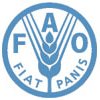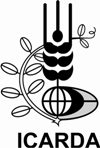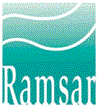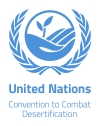
Electronic Development and Environment Information System
www.eldis.org/country
Eldis is one of a family of knowledge services from the Institute of Development Studies, Sussex.
Eldis is core funded by Sida, Norad, SDC and DFID.
Our missionThe aim of Eldis is to:
support the documentation, exchange and use of evidence-based development knowledge
communicate this knowledge effectively through a range of appropriately designed services, using the Internet (web and email) as the main communication medium for delivery
reach audiences of researchers, development practitioners and policy formers at national and international levels
play a role in the processes of evidence-based policy formation
provide this information and services free of charge at point of use
Subject(s): Dry and Sub-Humid Lands Biodiversity

FAO - Desertification
www.fao.org/desertification
The FAO Web site on desertification aims to assist national, regional and international stakeholders and networks involved in sustainable development of drylands and in particular in the implementation of the United Nations Convention to Combat Desertification (UNCCD).
The Web site contains technical and scientific data and information, available at FAO, as well as links to a number of highly informative Web sites on desertification.
The information provided in this site represents a significant share of the FAO knowledge and expertise on sustainable development and drylands management.
Subject(s): Dry and Sub-Humid Lands Biodiversity; Scientific and Technical Cooperation

International Center for Agricultural Research in the Dry Areas
www.icarda.org
Established in 1977, the International Center for Agricultural Research in the Dry Areas (ICARDA) is one of the 15 centers strategically located all over the world and supported by the Consultative Group on International Agricultural Research (CGIAR). With its main research station and offices based in Aleppo, Syria, ICARDA works through a network of partnerships with national, regional and international institutions, universities, non-governmental organizations and ministries in the developing world; and with advanced research institutes in industrialized countries.
Subject(s): Agricultural Biodiversity; Dry and Sub-Humid Lands Biodiversity; Cooperation and Partnerships

International Crops Research Institute for the Semi - Arid Tropics
www.cimmyt.org
The International Crops Research Institute for the Semi-Arid Tropics (ICRISAT) is a nonprofit, non-political organization that does innovative agricultural research and capacity building for sustainable development with a wide array of partners across the globe. ICRISAT's mission is to help empower 600 million poor people to overcome hunger, poverty and a degraded environment in the dry tropics through better agriculture. ICRISAT belongs to the Alliance of Future Harvest Centers of the Consultative Group on International Agricultural Research (CGIAR).
Subject(s): Agricultural Biodiversity; Chemicals and Pollution; Cooperation and Partnerships; Dry and Sub-Humid Lands Biodiversity; Exchange of Information

International Institute forSustainable Development
www.iisd.org
The International Institute for Sustainable Development (IISD) is a Canadian-based, public policy research institute that has a long history of conducting cutting-edge research into sustainable development.
Subject(s): Clearing-House Mechanism; Mountain Biodiversity; Agricultural Biodiversity; Dry and Sub-Humid Lands Biodiversity; Sustainable Development / Millenium Development Goals; Economics, Trade and Incentive Measures; Ecosystem Approach

Ramsar Convention on Wetlands
www.ramsar.org
The Convention's mission is "the conservation and wise use of all wetlands through local, regional and national actions and international cooperation, as a contribution towards achieving sustainable development throughout the world". The Convention uses a broad definition of the types of wetlands covered in its mission, including swamps and marshes, lakes and rivers, wet grasslands and peatlands, oases, estuaries, deltas and tidal flats, near-shore marine areas, mangroves and coral reefs, and human-made sites such as fish ponds, rice paddies, reservoirs, and salt pans.
Subject(s): Sustainable Development / Millenium Development Goals; Cooperation and Partnerships; Governance, Law and Policy; Inland Waters Biodiversity; Marine and Coastal Biodiversity; Economics, Trade and Incentive Measures

UNEP World Conservation Monitoring Centre
www.unep-wcmc.org
The UNEP World Conservation Monitoring Centre was established in 2000 as the world biodiversity information and assessment centre of the United Nations Environment Programme.
Subject(s): Dry and Sub-Humid Lands Biodiversity; Clearing-House Mechanism

United Nations Convention to Combat Desertification
www.unccd.int
The Convention offers new hope in the struggle against desertification. Over the past two decades, the problem of land degradation in dryland regions has continued to worsen. The Convention promotes a fresh new approach to managing dryland ecosystems and -- just as important -- to managing development aid flows.
Subject(s): Forest Biodiversity; Traditional Knowledge, Innovations and Practices - Article 8(j); Dry and Sub-Humid Lands Biodiversity

United Nations Institute for Training and Research
www.unitar.org/biodiversity-at-unitar
UNITAR is an autonomous body within the United Nations with a mandate to enhance the effectiveness of the UN through training and research. To meet this aim, UNITAR provides training to assist countries in meeting the challenges of the 21st century; conducts research to explore innovative training and capacity building approaches; and forms partnerships with other UN agencies, governments and non-governmental organizations for the development and implementation of training and capacity building programmes that meet countries' needs
Subject(s): Governance, Law and Policy; Inland Waters Biodiversity; Implementation of the Convention on Biological Diversity; Cities and Biodiversity; Access to Genetic Resources and Benefit-sharing; Biosafety and Biotechnology; Cartagena Protocol on Biosafety; Clearing-House Mechanism